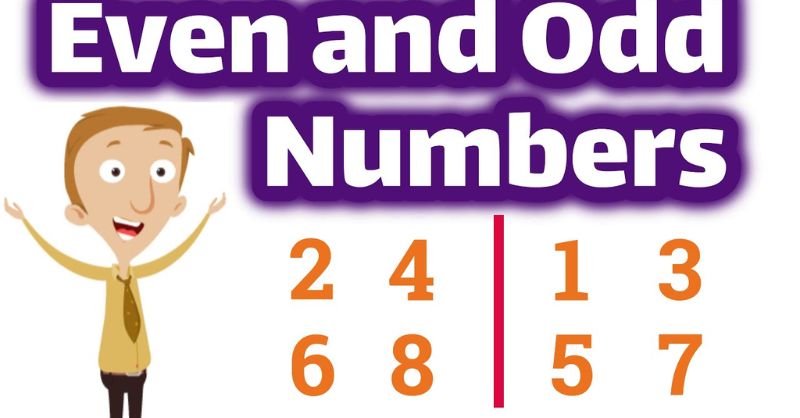Sitting down and recording your podcast for the first time can be intimidating. But worry not. We gathered all the materials you require to record your first episode so you can thoroughly examine how to create a podcast.
This guide is what you need to successfully record the ideal podcast content from the outset, from organizing your topics to ensuring you record high-quality sound.
Let’s go over each stage in this article.
Planning:
This is the first, frequently ignored step in the podcast-making process. Before moving forward, take some time to explore and understand this area. Understanding what you truly want to achieve is the best approach to positioning yourself and your podcast for success.
Choose A Topic
While Podcasting requires some work, you should take the time upfront to pick a subject that interests you. Something that occupies more mental space than just three episodes. Something that will sustain you over the long term.
Before starting to record, the first step is to prepare your topic. After building a profile of your target audience, list a few themes that appeal to them. The podcast’s first episode is the best opportunity to present the rest of the series and pique listeners’ curiosity.
We can’t advise you on what to choose or whether a topic is worthwhile.
But pick a topic you feel comfortable discussing for the cohosted format because the first episode can establish your rapport. The show will be able to flow more freely as a result.
Interview-style podcast hosts should take their time carefully screening their guests, from learning about their credentials to going over the most recent interviews they conducted. This will help you create a unique set of questions when you compose your script in the subsequent phase.
Name your Podcast
Even before people start listening to a single word of your show, they often see the title of your podcast. Thus it stands to reason that this is a crucial choice.
Suppose you’re apprehensive about deciding on a title and pushing forward. You can draw ideas from your branding, your artwork, what you say, how you communicate it, and many others.
A word of caution:
1. Don’t overdo it with the keywords in your podcast’s title.
2. Don’t keyword stuff by following the name of your program with a million keywords.
3. Keep your title as natural-sounding as possible, and choose your keywords wisely.
Choose A Podcasting Format.
Your format should feel practical and fit with your podcast topic.
If you decide to have cohosts, create a small gathering. Scheduling becomes difficult when there are more than two or three hosts for a podcast.
Keep in mind that specific podcasts demand more productivity than others. For example, fiction podcasts typically require more editing than podcasts with interviews.
These are some standard podcast formats:
- interview format podcasts
- cohosted format podcasts
- scripted non-fiction format
- news format
- educational podcasts
Write out a script
Whether a podcaster does it alone, with a cohost, or while conducting an interview with a guest, it is advised to practice establishing the episode’s theme in writing before recording. A podcast script can be written word-for-word or as a simple outline, depending on the program’s format. Choose the strategy that suits you the best.
Spending time here will benefit you because maintaining focus and even flow is crucial to creating engaging podcast content.
Podcasting Equipment.
You will require some equipment to record a podcast episode. Good audio can be achieved without spending a lot of money on equipment. Several well-known podcasts have a straightforward setup. The only essential equipment required is a computer, excellent headphones, and a microphone.
Recording space
You don’t need to set up a professional home studio to get decent sound quality. Practically any space can be converted into your studio. Just keep your environment free of too many flat objects that the sound will reflect off of. Having a backup plan in case of an emergency is a good idea.

A room with carpet and photos on the walls is an excellent place to start. Bookshelves around you are even better since they swallow sound. Many podcasters begin by recording in or into their closet, usually filled with clothing.
Podcasting software
It’s crucial to understand that creating a podcast involves more than just recording some audio and uploading it to a popular podcasting platform like Spotify.
Podcast hosting platform.
The platform you select to broadcast your podcast on can have a significant impact on its overall performance. It’s among the crucial decisions you must make while starting a podcast.
Large media files can be disseminated and stored via podcast hosting platforms before being available for download. They offer technologies specifically for podcasters to manage massive audio and video files and send them to their audience.
To get started, podcasters should look for a podcast hosting service that has proven reliable and innovative over the years, like Simplecast and Buzzsprout. As both provide many options and have comparable features and tools, selecting the best one can be time-consuming and difficult. So check out this Simplecast vs Buzzsprout comparison to make an informed decision.
Recording and editing software
You’ll require recording software after setting up your home studio. Here, you can organize your episode and improve the audio. Thankfully, editing software for podcasts is frequently inexpensive. Some top-notch, cost-free podcast editings software, like Audacity and garage band, are available.
Adjust the recording settings to guarantee high-quality sound recording when deciding on a program. Your input levels should be reviewed and modified in this area. Start speaking at a volume that is a bit louder than usual; typically, this will be between -15 and -22 dB.
Adjust the level about halfway up the meter. When you start recording, your speaking voice will be in this range, but it also gives you some wiggle room in case you need to move to a louder voice for emphasis.
Correct recording methods
Getting professional audio requires practice, so review and practice a few methods to capture high-quality sound before recording. Most people skip spot-checking their audio or neglect to warm up their vocal cords before entering an hour-long session, only to discover a problem too late.
Both seasoned professionals and newcomers can profit from regularly reviewing their microphone techniques. Throughout the session, it is generally advised to maintain a consistent distance of a few fingers’ lengths or more from the microphone.
Create podcast artwork
Potential listeners notice your podcast cover image first on any Podcasting platform. New listeners are likelier to try a podcast if they enjoy the cover art because high-quality artwork suggests high-quality content.
Your overall branding includes the artwork for your podcasts. Although the images should remain constant, you can make small adjustments to the artwork to accommodate different layouts and pages.

Uploading your first episode
Podcast listeners can locate new programs in one place by visiting podcast directories like Apple Podcasts, Spotify, and Google Podcasts. Your podcast marketing approach must include becoming listed in the major podcast directories. These directories will be where most of your new listeners discover your podcast.
Set up an account with all these podcast directories and provide your RSS feed from your hosting platform, and you are good to go. Every time you upload a new episode, it will be uploaded for your listeners to listen to anywhere, anytime.
Marketing your first podcast
Spreading the word about your podcast takes time. To create an effective podcast marketing plan, adhere to these four steps.
Posting on social media
Share short clips of your podcast on social media. Your work will interest viewers who prefer to share shorter samples and those who appreciate watching longer programs.
New viewers can quickly consume these clips and, after tasting your show, decide whether to watch your other videos. Also, the social media algorithm will suggest your other videos, making it simple for users to view more of your content.
Join online forums and groups.
Adding value to websites like Quora, Reddit, Facebook, and Twitter groups encourages others to find your podcast.
Answer questions that are current and pertinent in a way that you feel confident. Include a link to your episode to drive traffic to your podcast.
Work with other creators to cross-promote
You can collaborate with other podcasters to cross-promote each other’s podcasts. You can reach a new audience for your podcast with this marketing strategy.
Fellow podcasters’ contact information can be found via their websites or social media accounts.
Learn about using SEO.
If you want more visitors to your podcast, you must learn how to optimize it for search results.
For both your website and the podcast, this necessitates using SEO-recommended practices. By using targeted SEO keywords, you can ensure that people listening to your podcast see it when they do a relevant search.
Frequently asked questions about Podcasting.
How frequently should I release fresh episodes?
Weekly and biweekly publication cycles are the two most common. You can generate high-quality episodes in both cycles while still having time to advertise them to your intended audience.
How long should each episode of my podcast be?
The average runtime is between thirty and sixty minutes. However, the majority of podcasters discovered that listeners favor shorter episodes.
What characterizes a successful podcast?
An engaging subject or efficient editing and production methods that enhance the broadcasting quality are the causes of a podcast’s success. The popularity of a podcast can occasionally be influenced by its promotion, advertising, or the platform and audience that its creator has already built.
What makes a podcast lousy?
Unbalance sound levels and unwanted sounds. For instance, listening to a podcast can be difficult when two people speak at various volumes. Also, the louder host might laugh or speak, making it even more difficult for the other person to be heard.
Bottomline
Congratulations, you are ready to launch your first podcast episode without hesitation. We urge you to submit your episode as soon as possible if you’ve made it this far and are prepared to publish it. You can add changes and experiment with what works for you as you produce more episodes.
Additionally, with all the effort that you put into launching your podcast. It is crucial that potential listeners can find your podcast. Investing in a reliable SEO agency is one of the simplest and most effective ways to increase your online visibility. So to help you find the best agency check out our in-depth guide on How to find an SEO agency – Step-by-Step Guide before you leave.








 March 15, 2023
March 15, 2023








